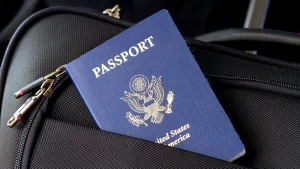Spotlight on Texas SB 4: A Precedent for State-Level Immigration Enforcement?

In a landmark move that could redefine the landscape of immigration law enforcement in the United States, Texas Senate Bill 4 (SB4 Texas 2023 passed) has sparked intense discussions among legal experts, policymakers, and immigrant communities. With the backdrop of the Supreme Court decision on immigration, the implications of SB4 extend far beyond mere policy changes, intertwining with new Texas laws in 2024, and forecasting a tumultuous Texas showdown in 2024.

Overview of Texas SB4
At its core, Texas SB4 challenges sanctuary city policies, compelling local law enforcement in Texas to enforce federal immigration detainer requests. This law represents a significant bill stand against perceived gaps in immigration enforcement, symbolizing a critical juncture in the Texas vs federal government immigration debate. As we edge closer to new Texas immigration laws, underpinning the moral and ethical dimensions of this legal skirmish.

Legal and Social Implications of SB4
The controversy surrounding SB4 underscores the precarious balance between safeguarding public safety and protecting civil liberties. The spectre of racial profiling and the potential erosion of trust within immigrant communities pose profound questions, reminiscent of the broader What does God say about illegal immigration? debate. Amidst this legal and social tumult, the Supreme Court on immigration looms large, poised to dictate the trajectory of immigration law in Texas and, by extension, new Texas immigration laws in 2024.
Potential for Legal Challenges
The path of SB4 through the judiciary has illuminated the contentious interplay between state prerogatives and federal mandates in immigration enforcement. Critics of SB4, viewing it as a litmus test for Texas border and federal government relations, anticipate a seminal Supreme Court ruling Texas border, potentially reshaping the immigration Texas border legal landscape. This pivotal juncture could signal a supreme drop this week in the annals of immigration jurisprudence, influencing immigration lawyers in Texas and beyond.
Further Insights and Developments
As Texas immigration news continues to unfold, the ramifications of SB4 extend into various facets of society and governance. The anticipated new Texas immigration law and its alignment with SB4 Texas 2023 passed legislation underscore the evolving dynamics of Texas immigration policy. This evolving narrative not only captivates immigration law Texas professionals but also shapes the discourse around immigration laws in Texas, reflecting broader national debates over immigration law that just passed and the future of immigration in Texas.

Implications for Future Legislation
passage of SB4 in Texas and its subsequent legal challenges illuminate the intricate dance between state innovation in policy-making and adherence to federal mandates. As states like Texas venture to pass laws such as SB4 Texas law that test the waters of state autonomy in immigration enforcement, the outcomes of these endeavors will likely influence future legislative efforts across the nation. Legislators and policymakers are keenly aware of the Supreme Court immigration case today, recognizing its potential to delineate the parameters of state action in the domain of immigration law.
Reflecting on the Broader Impact of SB4
The dialogue surrounding SB4 and similar legislation underscores a pivotal moment in the United States’ ongoing discourse on immigration, sovereignty, and federalism. The immigration law in Texas, particularly the new Texas immigration law as shaped by SB4, serves as a barometer for the country’s evolving stance on these critical issues. As states observe the Texas immigration news, the national conversation on immigration policy continues to evolve, marked by a delicate balance between upholding the rule of law and ensuring the humane treatment of individuals within American borders.
Looking Forward: The Role of State Governments in Immigration Law Enforcement

As the landscape of immigration enforcement evolves with the passage of SB4 Texas 2023, the role of state governments has come under intense scrutiny. This legislation, emblematic of Texas’s assertive stance on immigration control, beckons a new era in which state initiatives could significantly influence national immigration policies. The enactment of SB4 serves not only as a bill stand but also as a catalyst for other states contemplating similar measures, potentially heralding a patchwork of immigration laws that reflect the diverse political and social fabric of the United States. This scenario underscores the crucial need for an immigration law that just passed to be thoroughly understood and meticulously implemented to bridge the gap between federal objectives and state prerogatives.
Conclusion
The journey of SB4 through the legal and social fabric of Texas epitomizes the complexities of American immigration law. As stakeholders keenly await the Supreme Court on Texas border verdicts, the implications for new Texas law immigration and Texas immigration law remain profound. Amidst these legal battles and societal debates, the essence of “only God can judge me” serves as a poignant reminder of the human element inherent in the discourse on illegal immigration and immigration enforcement.
